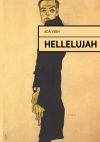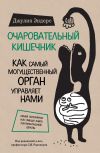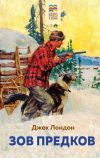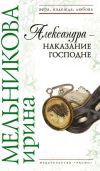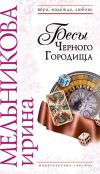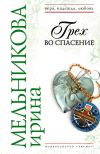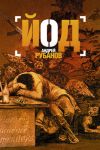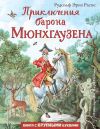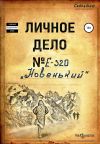Читать книгу "Basic literary translation"
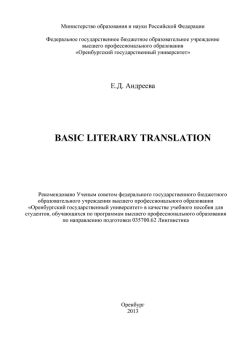
Автор книги: Елена Андреева
Жанр: Языкознание, Наука и Образование
сообщить о неприемлемом содержимом
2.2 Simile
 Simile is a stylistic device, partial assimilation of two different objects/actions or their attributes. Simile is an imaginative comparison (He shone like a new pin. – S. Maugham). Simile can be expressed in various forms: a) compound word (dog-like, tasty-looking); b) construction with conjunction like (to fit like a glove) or as; in some cases it double as can be used (as bright as a button, as proud as a peacock); c) simile can be implied in other phrases, i.e. of-phrases (to have an eye of an eagle).
Simile is a stylistic device, partial assimilation of two different objects/actions or their attributes. Simile is an imaginative comparison (He shone like a new pin. – S. Maugham). Simile can be expressed in various forms: a) compound word (dog-like, tasty-looking); b) construction with conjunction like (to fit like a glove) or as; in some cases it double as can be used (as bright as a button, as proud as a peacock); c) simile can be implied in other phrases, i.e. of-phrases (to have an eye of an eagle).
Possible means of translation:
 full translation;
full translation;
Darkness poured out, submerging the ways between the trees till they were dim and strange as the bottom of the sea [32].
Тьма хлынула на лес, затопляя проходы между стволами, пока они не стали тусклыми и чужими, как дно морское [18].
 substitution of the image;
substitution of the image;
The pig’s head hung down with gaping neck and seemed to search for something on the ground [32].
Голова металась под зияющим горлом и будто вынюхивала дорогу [18].
 conversion (structural transformation);
conversion (structural transformation);
Now the sea would suck down, making cascades and waterfalls of retreating water, would sink past the rocks and plaster down the seaweed like shining hair <…> [32]
Упадёт, взметнув брызги, разденет скалы, облепленные мокрыми прядями водорослей <…> [18]
 omission / addition (extension).
omission / addition (extension).
Sometimes land loomed where there was no land and flicked out like a bubble as the children watched [32].
А то земля вдруг вставала там, где никакой земли не было, и тут же на глазах у детей исчезала, как мыльный пузырь [18].
At last the way to the top looked like a scramble over a pink rock , with no more plunges through darkness [32].
К вершине теперь вели только голые розовые скалы, и больше не приходилось нырять во тьму [18].
 Also: concrete definition, descriptive translation, etc.
Also: concrete definition, descriptive translation, etc.
Exercises
1 . Find in the given text the words used in metaphorical sense and write out of a dictionary all their meanings. Compose your own sentences using every word in direct and figurative meaning.
While we were talking, as I have said, we noticed a dark line, like a low cloud or fog-bank, on the seaward horizon. The day was a fine one, though cloudy, and a gentle breeze was blowing, but the sea was not rougher, or the breaker on the reef higher, than usual. At first we thought that this looked like a thunder-cloud; and, as we had had a good deal of broken weather of late, accompanied by occasional peals of thunder, we supposed that a storm must be approaching. Gradually, however, this line seemed to draw nearer, without spreading up over the sky, as would certainly have been the case if it had been a storm-cloud. Still nearer it came, and soon we saw that it was moving swiftly towards the island; but there was no sound till it reached the islands out at sea. As it passed these islands, we observed, with no little anxiety, that a cloud of white foam encircled them, and burst in spray into the air: it was accompanied by a loud roar. This led us to conjecture that the approaching object was an enormous wave of the sea; but we had no idea how large it was till it came near to ourselves. When it approached the outer reef, however, we were awe-struck with its unusual magnitude; and we sprang to our feet, and clambered hastily up to the highest point of the precipice, under an indefinable feeling of fear.
I have said before that the reef opposite Spouting Cliff was very near to the shore, while, just in front of the bower, it was at a considerable distance out to sea. Owing to this formation, the wave reached the reef at the latter point before it struck at the foot of Spouting Cliff. The instant it touched the reef we became aware, for the first time, of its awful magnitude. It burst completely over the reef at all points, with a roar that seemed louder to me than thunder; and this roar continued for some seconds, while the wave rolled gradually along towards the cliff on which we stood. As its crest reared before us, we felt that we were in great danger, and turned to flee; but we were too late. With a crash that seemed to shake the solid rocks the gigantic billow fell, and instantly the spouting-holes sent up a gush of water-spouts with such force that they shrieked on issuing from their narrow vents. It seemed to us as if the earth had been blown up with water.
From “The Coral Island”, by R.M. Ballantyne
2 . Find in the given text similes and define their forms, their function and appropriateness of their usage in the text.
Towards noon, as the floods of light fell more nearly to the perpendicular, the stark colours of the morning were smoothed in pearl and opalescence; and the heat – as though the impending sun’s height gave it momentum – became a blow that they ducked, running to the shade and lying there, perhaps even sleeping.
Strange things happened at mid-day. The glittering sea rose up, moved apart in planes of blatant impossibility; the coral reef and the few, stunted palms that clung to the more elevated parts would float up into the sky, would quiver, be plucked apart, run like raindrops on a wire or be repeated as in an odd succession of mirrors. Sometimes land loomed where there was no land and flicked out like a bubble as the children watched. Piggy discounted all this learnedly as a “mirage”; and since no boy could reach even the reef over the stretch of water where the snapping sharks waited, they grew accustomed to these mysteries and ignored them, just as they ignored the miraculous, throbbing stars. At mid-day the illusions merged into the sky and there the sun gazed down lake an angry eye. Then, at the end of the afternoon, the mirage submerged and the horizon became level and blue and clipped as the sun declined. That was another time of comparative coolness but menaced by the coming of the dark. When the sun sank, darkness dropped on the island like an extinguisher and soon the shelters were full of restlessness, under the remote stars.
From “Lord of the Flies”, by W. Golding
3 . Compare the original and its translation. Define means of translation used by the translator.



From “Lord of the Flies”, by W. Golding
4 . Translate the following sentences paying attention to the similes. Explain what means of translation you have used.
1. The fair boy stopped and jerked his stockings with an automatic gesture that made the jungle seem for a moment like the Home Counties [32].
2. The rock was as large as a small motor car [32].
3. For yards round the fire the heat was like a blow, and the breeze was a river of sparks [32].
4. All at once they were aware of the evening as the end of light and warmth [32].
5. One patch touched a tree trunk and scrambled up like a bright squirrel [32].
6. The flames, as though they were kind of wild life, crept as a jaguar creeps on its belly towards a line of birch-like saplings that fledged an outcrop of the pink rock [32].
7. Sixty feet above Roger, a cluster of nuts, fibrous lumps as big as rugby balls, were loosed from their stems [32].
8. He abandoned the noiseless transparencies and pointed at the centre of the spreading ring like a setter [32].
9. The hunters sat, stuffing themselves with this easy meal, trying to convince themselves that they had got sufficient kick out of bananas and that other olive-grey, jellylike fruit [32].
10. The forest re-echoed; and birds lifted, crying out of the tree-tops, as on that first morning ages ago [32].
11. A great noise as of sea-gulls rose behind him [32].
12. His hair was full of dirt and tapped like tendrils of a creeper [32].
13. But the hunters had only sneaked into the fringes of the greenery, retrieving spears perhaps, and then rushed back to the sunny rock as if terrified of the darkness under the leaves [32].
14. The red rock that he could see at the top of the cliff vanished like a curtain, and he could see figures and blue sky. A moment later the earth jolted, there was a rushing sound in the air, and the top of the thicket was cuffed as with a gigantic hand [32].
15. Below him, someone’s legs were getting tired and the desperate ululation advanced like a jagged fringe of menace and was almost overhead [32].
5 . Translate the following sentences paying attention to the similes. Explain what means of translation you have used.
1. Огромные холмы с белым гребнем, с воем толкая друг друга, падают, опять встают, как будто толпа вдруг выпущенных на волю бешеных зверей дерется в остервенении, только брызги, как дым, поднимаются да стон носится в воздухе [26].
2. Вдруг в это время стало кренить на мою сторону.
– Вот, вот так! – учил он, опускаясь на пол. – Ай, ай! – закричал он потом, ища руками кругом, за что бы ухватиться. Его потащило с горы, и он стремительно домчался вплоть до меня… на всегда готовом экипаже [26].
3. Холмы, как пустая декорация, поднимались из воды и, кажется, грозили рухнуть, лишь только подойдешь ближе [26].
4. Но нам, особенно после низменных и сырых берегов Англии, гора показалась исполином [26].
5. Ужели это город: эти белеющие внизу у самой подошвы, на берегу, домы, как будто крошки сахара или отвалившейся откуда-то штукатурки? [26]
6. Мы пошли по улицам, расположенным амфитеатром, потому что гора начинается прямо от берега [26].
7. Еще досаднее, что они носятся с своею гордостью, как курица с яйцом, и кудахтают на весь мир о своих успехах <…> [26].
8. Я обернулся на Мадеру в последний раз: она вся закуталась, как в мантию, в облака, как будто занавес опустился на волшебную картину, и лежала далеко за нами темной массой; впереди довольно уже близко неслась на нас другая масса – наш корабль [26].
9. Индия, Манила, Сандвичевы острова – все это вертелось у меня в голове, как у пьяного неясные лица его собеседников [26].
10. Вверху, однако ж, небо было свободно от туч, и оттуда, как из отверстий какого-то озаренного светом храма, сверкали миллионы огней всеми красками радуги, как не сверкают звезды у нас никогда [26].
11. Самый близкий, Сант-Яго, лежал, как громадный ком красной глины [26].
12. Долина скрылась из глаз, и опять вся картина острова стала казаться такою увядшею, сухою и печальною, точно старуха, но подрумяненная на этот раз пурпуровым огнем солнечного заката [26].
13. Мы вопросительно озирались вокруг, а небо, море сияют нестерпимым блеском, точно смеются, как иногда смеется сильная злоба над немощью. <…> Море колыхается целой массой, как густой расплавленный металл; ни малейшей чешуи, даже никакого всплеска [26].
14. Исполинские скалы, почти совсем черные от ветра, как зубцы громадной крепости, ограждают южный берег Африки [26].
15. А после, когда я увидел Столовую гору, эта мне показалась пригорком [26].
16. Южная ночь таинственна, прекрасна, как красавица под черной дымкой: темна, нема; но все кипит и трепещет жизнью в ней, под прозрачным флером [26].
17. Черная, как поношенный атлас, старуха негритянка, с платком на голове, чистила ножи [26].
18. Может быть, стелленбошская коллегия будет со временем африканским Геттингеном или Оксфордом [26].
19. Мы вышли и нарвали себе несколько веток [камфарного дерева], с листьями и плодами, величиной с крупную горошину, от которых вдруг в экипажах разлился запах, напоминающий зубную боль и подушечки [26].
20. Если б он не был гражданский инженер и геолог, то, конечно, был бы африканский Рубини: у него изумительный фальцетто [26].
21. Кругом теснились скалы, выглядывая одна из-за другой, как будто вставали на цыпочки [26].
22. Мы переправились вброд через реку, остановились на минуту около какого-то шалаша, где продавали прохожим хлеб, кажется еще водку, и где наши купили страусовых яиц, величиной с маленькую дыню [26].
23. Я успел заметить только белокурого полного пастора с женой и с детьми. Нельзя не заметить: крик, шум, везде дети, в сенях, по ступеням лестницы, в нумерах, на крыльце, – и все пастора. Настоящий Авраам – после божественного посещения [26].
24. Они [буруны], как будто ряд гигантских всадников, наскакивали с шумом, похожим на пушечные выстрелы, и с облаком пены на каменья, прыгали через них, как взбесившиеся кони через пропасти и преграды, и, наконец, обессиленные, падали клочьями грязной, желтой пены на песок [26].
25. У подошвы ее, по берегу, толпятся домы, и между ними, как напоказ, выглядывают кое-где пучки банановых листьев, которые сквозят и желтеют от солнечных лучей, да еще видна иногда из-за забора, будто широкая метла, верхушка убитого солнцем дерева [26].
6 . Translate the extract from Ex. 1.
7 . Translate the extract from Ex. 2.
8 . Translate the following texts paying attention to similes.
Extract 1
Тут на дверях висела связка каких-то незнакомых мне плодов, с виду похожих на огурцы средней величины. Кожа, как на бобах – на иных зеленая, на других желтая. «Что это такое?» – спросил я. «Бананы», – говорят. «Бананы! тропический плод! Дайте, дайте сюда!» Мне подали всю связку. Я оторвал один и очистил – кожа слезает почти от прикосновения; попробовал – не понравилось мне: пресно, отчасти сладко, но вяло и приторно, вкус мучнистый, похоже немного и на картофель, и на дыню, только не так сладко, как дыня, и без аромата или со своим собственным, каким-то грубоватым букетом. Это скорее овощ, нежели плод, и между плодами он – parvenu.
Extract 2
И ночи не приносили прохлады, хотя и были великолепны. Каждую ночь на горизонте, во всех углах, играла яркая зарница. Небо млело избытком жара, и по вечерам носились в нем, в виде пыли, какие-то атомы, помрачавшие немного огнистые зори, как будто семена и зародыши жаркой производительной силы, которую так обильно лили здесь на землю и воду солнечные лучи. Мы часто видели метеоры, пролетавшие по горизонту. В этом воздухе природа, как будто явно и открыто для человека, совершает процесс творчества; здесь можно непосвященному глазу следить, как образуются, растут и зреют ее чудеса; подслушать, как растет трава. Творческие мечты ее так явны, как вдохновенные мысли на лице художника. Авось услышим, как растет – хоть сладкий картофель или табак. По ночам реомюр показывал только градусом меньше против дня.
Extract 3
Жар несносный; движения никакого, ни в воздухе, ни на море. Море – как зеркало, как ртуть: ни малейшей ряби. Вид пролива и обоих берегов поразителен под лучами утреннего солнца. Какие мягкие, нежащие глаз цвета небес и воды! Как ослепительно ярко блещет солнце и разнообразно играет лучами в воде! В одном месте пучина кипит золотом, там как будто горит масса раскаленных угольев: нельзя смотреть; а там подальше, кругом до горизонта, распростерлась лазурная гладь. Глаз глубоко проникает в прозрачные воды. Земли нет: все леса и сады, густые, как щетка. Деревья сошли с берега и теснятся в воду. За садами вдали видны высокие горы, но не обожженные и угрюмы, как в Африке, а все заросшие лесом. Направо явайский берег, налево, среди пролива, зеленый островок, а сзади, на дальнем плане, синеет Суматра.
Из книги очерков «Фрегат «Паллада» И.А. Гончарова
2.3 Hyperbole
 Hyperbole (overstatement) is a trope aimed at deliberate exaggeration of dimensions or other attributes of the object. This device of expressiveness imparts emphatic character to the phrase. Hyperbole does not mean the actual state of objects or phenomena, but emotional evaluation of reality by a speaker. When characteristic features of an object or phenomenon are underrated, we deal with the opposite stylistic device – understatement (meiosis). The mechanism of its creation and functioning is identical with that of hyperbole. Hyperbole and meiosis can be expressed by various parts of speech; owing to this they can be similar to other stylistic devices (mostly epithets and metaphors).
Hyperbole (overstatement) is a trope aimed at deliberate exaggeration of dimensions or other attributes of the object. This device of expressiveness imparts emphatic character to the phrase. Hyperbole does not mean the actual state of objects or phenomena, but emotional evaluation of reality by a speaker. When characteristic features of an object or phenomenon are underrated, we deal with the opposite stylistic device – understatement (meiosis). The mechanism of its creation and functioning is identical with that of hyperbole. Hyperbole and meiosis can be expressed by various parts of speech; owing to this they can be similar to other stylistic devices (mostly epithets and metaphors).
Possible means of translation:
 literal translation;
literal translation;
Acres of black and yellow smoke rolled steadily towards the sea [32].
Акры чёрного и рыжего дыма упрямо валили к морю [18].
 contextual substitution;
contextual substitution;
Flower and fruit grew together on the same tree and everywhere was the scent of ripeness and the booming of a million bees at pasture [32].
Цветы и фрукты росли рядом, вперемешку, и вокруг стоял запах спелости и густое жужжание несметных пасущихся пчёл [18].
 conversion (structural transformation);
conversion (structural transformation);
Down here, almost on a level with the sea, you could follow with your eye the ceaseless , bulging passage of the deep sea waves [32].
Тут, чуть не вровень с водой, можно было следить глазами, как без конца взбухают и накатывают глубинные волны [18].
 omission / addition (extension).
omission / addition (extension).
The beach between the palm terrace and the water was a thin bow-stave, endless apparently <…> [32].
Полоска песка между пальмовой террасой и морем убегала тонкой лукой неведомо куда <…> [18].
Exercises
1 . Find in the given text the words used in metaphorical sense and write out of a dictionary all their meanings. Compose your own sentences using every word in direct and figurative meaning.
“You must know,” said he, “I walked about all the forenoon, till I was as tired as an old donkey, without seeing a single grunter, not so much as a track of one; but, as I was determined not to return empty-handed, I resolved to go without my dinner and – “
“What!” exclaimed Jack, “did you REALLY resolve to do that?”
“Now, Jack, hold your tongue,” returned Peterkin; “I say that I resolved to forego my dinner and to push to the head of the small valley, where I felt pretty sure of discovering the hogs. I soon found that I was on the right scent, for I had scarcely walked half a mile in the direction of the small plum tree we found there the other day, when a squeak fell on my ear. ‘Ho, ho,’ said I, ‘there you go, my boys;’ and I hurried up the glen. I soon started them, and singling out a fat pig, ran tilt at him. In a few seconds I was up with him, and stuck my spear right through his dumpy body. Just as I did so, I saw that we were on the edge of a precipice, whether high or low I knew not, but I had been running at such a pace that I could not stop, so the pig and I gave a howl in concert and went plunging over together. I remembered nothing more after that, till I came to my senses and found you bathing my temples, and Ralph wringing his hands over me.”
From “The Coral Island”, by R.M. Ballantyne
2 . Find in the given texts hyperboles or understatements and define their forms, their function and appropriateness of their usage in the text.
Extract 1.
When we approached Cape Horn, at the southern extremity of America, the weather became very cold and stormy, and the sailors began to tell stories about the furious gales and the dangers of that terrible cape.
“Cape Horn,” said one, “is the most horrible headland I ever doubled. I’ve sailed round it twice already, and both times the ship was a’most blow’d out o’ the water.”
“An’ I’ve been round it once,” said another, “an’ that time the sails were split, and the ropes frozen in the blocks, so that they wouldn’t work, and we wos all but lost.”
“An’ I’ve been round it five times,” cried a third, “an’ every time wos wuss than another, the gales wos so tree-mendous!”
“And I’ve been round it no times at all,” cried Peterkin, with an impudent wink of his eye, “an’ THAT time I wos blow’d inside out!”
Extract 2.
Peterkin did as he was directed, and we both burst into uncontrollable laughter at the changes that instantly passed over his expressive countenance. No sooner had he put the nut to his mouth, and thrown back his head in order to catch what came out of it, than his eyes opened to twice their ordinary size with astonishment, while his throat moved vigorously in the act of swallowing. Then a smile and look of intense delight overspread his face, except, indeed, the mouth, which, being firmly fixed to the hole in the nut, could not take part in the expression; but he endeavoured to make up for this by winking at us excessively with his right eye. At length he stopped, and, drawing a long breath, exclaimed –
“Nectar! Perfect nectar! I say, Jack, you’re a Briton – the best fellow I ever met in my life. Only taste that!” said he, turning to me and holding the nut to my mouth.
Extract 3.
“Oh! don’t stop him from speaking, Jack,” said Peterkin, who, now that his fears for my safety were removed, busied himself in erecting a shelter of broken branches in order to protect me from the wind; which, however, was almost unnecessary, for the rock beside which I had been laid completely broke the force of the gale. “Let him speak, Jack; it’s a comfort to hear that he’s alive, after lying there stiff and white and sulky for a whole hour, just like an Egyptian mummy. Never saw such a fellow as you are, Ralph; always up to mischief. You’ve almost knocked out all my teeth and more than half choked me, and now you go shamming dead! It’s very wicked of you, indeed it is.”
From “The Coral Island”, by R.M. Ballantyne
3 . Compare the original and its translation. Define means of translation used by the translator.



From “Lord of the Flies”, by W. Golding
4 . Translate the following sentences paying attention to the hyperboles and understatements. Explain what means of translation you have used.
1. The water was warmer then his blood and he might have been swimming in a huge bath [32].
2. Clouds of birds rose from the tree-tops, and something squealed and ran in the undergrowth [32].
3. I bet you can hear that for miles [32].
4. Here, the roots and stems of creepers were in such tangles that the boys had to thread through them like pliant needles [32].
5. Round the castles was a complex of marks, tracks, walls, railway lines, that were of significance only if inspected with the eye at beach-level [32].
6. Like a myriad of tiny teeth in a saw, the transparencies came scavenging over the beach [32].
7. “There was lashings of blood”, said Jack, laughing and shuddering, “you should have seen it!” [32].
8. My daddy says there’s things, what d’you call ’em that make ink-squids – that are hundreds of yards long and eat whales whole [32].
9. Jack’s face went so white that the freckles showed as clear, brown flecks [32].
10. He was surrounded on all sides by chasms of empty air [32].
11. Soon, in a matter of centuries, the sea would make an island of the castle [32].
12. Now he saw the landsman’s view of the swell and it seemed like the breathing of some stupendous creature [32].
13. A steady current of heated air rose all day from the mountain and was thrust to ten thousand feet; revolving masses of gas piled up the static until the air was ready to explode [32].
14. There was only one other rock up there that they might conceivably move; but that was half as big as a cottage, big as a car, a tank [32].
15. Perhaps he can hear my heart over the noises of the fire [32].
16. Peterkin immediately put them on, but they were so large that, as Jack said, they would have done for boots, trousers, and vest too [28].
5 . Translate the following sentences paying attention to the hyperboles and understatements. Explain what means of translation you have used.
1. А съевши один апельсин, я должен было сознаться, что хороших апельсинов до этой минуты никогда не ел [26].
2. Улицы так длины, что конца нет: версты две и более [26].
3. Вероятно, эти деревья ровесники местечку, а оно старше почти всех других в колонии <…> [26].
4. Мы застали уже накрытый стол <…>. Чего только не было наставлено на столе: это лавочка съестных припасов [26].
5. Я познакомился с ними, и мы пошли за город, к мосту, через мост по полю, и уже темным вечером, почти ощупью, воротились в город [26].
6. Эти шесть миль, которые мы ехали с доктором, большею частью по побочным дорогам, были истинным истязанием, несмотря на живописные овраги и холмы: дорогу размыло дождем, так что по горам образовались глубокие рытвины, и экипажи наши не катились, а перескакивали через них [26].
7. Надо отдать справедливость Вандику: он в искусстве владеть вожжами стоит если не выше, то так же высоко, как его соименник в искусстве владеть кистью [26].
8. На крыльце лежало бесчисленное множество тыкв; шагая между ними, мы добрались до хозяина и до его руки, которую потрясли все по очереди [26].
9. Нельзя нарочно правильнее обставить горами, как обставлена эта долина [26].
10. Тут же был и портрет хозяина: я узнал таким образом, который настоящий: этот – небритый, в рубашке и переднике; говорил в нос, топал, ходя, так, как будто хотел продавить пол [26].
11. Он от ученых разговоров легко переходит к шутке, поет так, что мы хором не могли перекричать его [26].
12. По дроге могли проехать два экипажа, но это пространство размерено с такою точностью, что сверх этого и мыши негде было бы пройти [26].
13. Вот барон Криднер, напротив, ничего не помнил, ни местности, ни лиц, и тоже никогда не смотрел вперед [26].
14. Темнота адская; мы не видели, куда ехали: перед глазами стояла как будто стена [26].
15. Веллингтон лежал как будто у ног наших, несмотря на то, что мы были милях в пяти от него [26].
6 . Translate the extract from Ex. 1.
7 . Translate the extract from Ex. 2.
8 . Translate the following text paying attention to the hyperboles.
Представьте себе над головой сплошную каменную стену гор, которая заслоняет небо, солнце и которой не видать вершины. По этим горам брошены другие, меньшие горы; они, упав, раздробились, рассыпались и покатились в пропасти, но вдруг будто были остановлены на пути и повисли над бездной. То видишь точно целый город, с обрушившимися от какого-нибудь страшного переворота башнями, столбами и основаниями зданий, то толпы слонов, носорогов и других животных, которые дрались в общей свалке и вдруг окаменели. Так, кажется, сидят группой изваяния великанов. Здесь, на горе, чуть-чуть держится скала, цепляясь за гору одним углом, и всем основанием висит над бездной. Далее и далее всё стены гор и всё разбросанные на них громадные обломки, похожие на монастыри, на исполинские надгробные памятники, точно следы страшного опустошения.
Кажется, довольно одного прикосновения к этим глыбам, чтоб они полетели вниз, между тем здесь даже Архимедов рычаг бессилен. Нужно по крайней мере землетрясение или мистера Бена, чтоб сдвинуть их с места.
Из книги очерков «Фрегат «Паллада» И.А. Гончарова
Внимание! Это не конец книги.
Если начало книги вам понравилось, то полную версию можно приобрести у нашего партнёра - распространителя легального контента. Поддержите автора!

